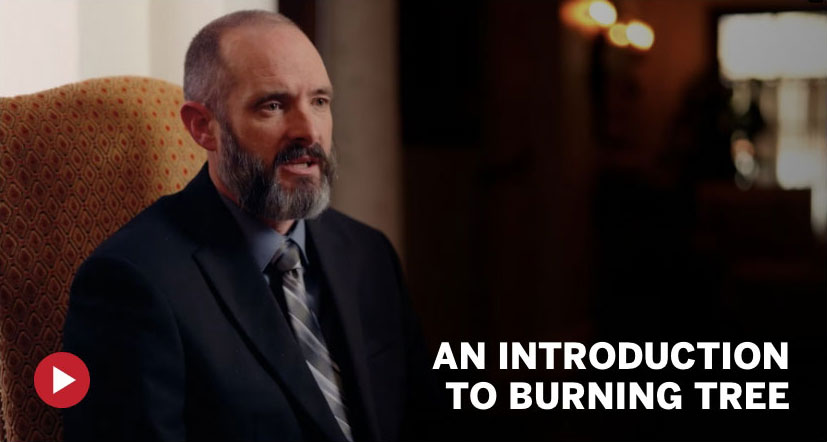When Should Trust Officers Refer a Client to Long-Term Addiction Treatment?
Trust Officers, as fiduciaries, manage trusts on behalf of beneficiaries and have a duty to act in the best interests of those beneficiaries. In the course of their duties, they might encounter situations where a beneficiary’s substance use disorder (SUD) affects their ability to manage their inheritance responsibly or poses a risk to their well-being. Below, we outline several circumstances under which a Trust Officer might refer a person to long-term, chronic addiction treatment like the program at Burning Tree Ranch.
Who We Are
Burning Tree Ranch is a specialty program dedicated to the treatment of chronic addiction and mental health. Our program is long-term, progress-based, and highly intensive. Since 1999, we have supported countless referring professionals in delivering ethical, high-quality solutions to the clients and families they represent.
Circumstances for Referral to Long-Term Treatment
Financial Mismanagement
A Trust Officer might consider a referral if a beneficiary exhibits signs of financial mismanagement linked to substance use, such as the rapid depletion of trust assets on non-essential or harmful expenditures.
Legal Problems
Encountering legal issues that stem from or are exacerbated by the beneficiary's substance use, such as DUIs or drug-related charges, could indicate the need for intervention.
Health Decline
Observing a significant decline in the beneficiary's physical or mental health that can be attributed to substance use might necessitate a referral to a treatment program to protect the beneficiary’s well-being.
Trust Terms and Conditions
Trust documents may include specific terms that address a beneficiary's health and behavior as conditions for receiving benefits. If substance use violates these terms, a Trust Officer might facilitate treatment as a condition for continued access to trust assets.
Family Concerns
If family members express concerns about a beneficiary's substance use and its impact on their health and financial stability, a Trust Officer might act on these concerns by recommending treatment options.
Observations Informing the Need
Trust Officers must approach the subject with sensitivity and professionalism, recognizing their position to influence positive outcomes for the beneficiary. They may not have the authority to mandate treatment. Still, they can encourage and facilitate access to addiction treatment resources, working within the parameters of the trust and in alignment with legal and ethical obligations to the beneficiary’s best interests.
Erratic Withdrawals from the Trust: Unexplained or erratic patterns of withdrawals from the trust funds, especially if used for known substances or associated behaviors, can be a clear sign.
Change in Behavior or Appearance: Notable changes in the beneficiary’s behavior during interactions, such as appearing under the influence, erratic behavior, or a noticeable decline in personal appearance, might alert the Trust Officer.
Neglect of Responsibilities: A beneficiary neglecting personal, professional, or educational responsibilities, which could be indicative of a deeper issue like addiction.
Direct Admissions: A beneficiary might directly communicate their struggles with substance use to the Trust Officer, either as a cry for help or in the context of trust management discussions.
Financial Instability: Signs of financial instability beyond the trust’s support, such as accruing significant debt or facing financial legal issues, could indicate misuse of funds related to substance use.

Balancing Trust Management with Beneficiary Health: A Trust Officer’s Guide
The responsibility of a Trust Officer to recommend long-term chronic addiction treatment to a beneficiary hinges on their role as a fiduciary and protector of the beneficiary’s interests under the terms of the trust. While Trust Officers are primarily concerned with financial and legal stewardship, their duty to act in the best interest of the beneficiaries can extend to matters affecting those beneficiaries’ health and well-being, significantly when such issues impact their ability to manage or benefit from the trust.
Fiduciary Duty and Beneficiary Well-being
Trust Officers are legally obligated to act in the best interests of the trust’s beneficiaries. When a beneficiary’s substance use disorder adversely affects their health or threatens their financial stability, recommending treatment aligns with promoting their overall well-being.
Some trusts include specific provisions related to the beneficiary’s health and behavior. Suppose the trust terms allow or require intervention in scenarios where a beneficiary’s health issues, including addiction, impair their ability to benefit from the trust. In that case, a Trust Officer might be more directly responsible for recommending treatment.
Ethical Considerations and Professional Judgment
Any actions taken, including recommendations for addiction treatment, must be approached with sensitivity to the beneficiary’s privacy and dignity. Trust Officers must navigate these conversations carefully, respecting confidentiality and the beneficiary’s autonomy.
Trust Officers should recognize the limits of their professional expertise.
Recommendations for addiction treatment should be based on observed impacts on the trust and the beneficiary’s well-being, possibly in consultation with professionals who specialize in addiction and health care.
Practical Implementation
While not directly responsible for managing a beneficiary’s health care, Trust Officers can provide valuable resources, such as information on reputable treatment programs or access to estate funds designated for health care, if permitted by the trust.
In cases where intervention is deemed necessary, Trust Officers might collaborate with legal advisors and health professionals to ensure that any recommendation for treatment is appropriate and respects the beneficiary’s legal rights.
If the trust terms allow, a Trust Officer might adjust distributions or set conditions related to health and treatment compliance, using the trust’s financial resources to incentivize the beneficiary to seek treatment.

Empowering Recovery: How Trust Officers Use Incentives for Addiction Treatment
A Trust Officer, in their capacity as a fiduciary advisor to families, can play a significant role in motivating a beneficiary to seek and complete treatment for substance use disorder (SUD), especially when such issues threaten the family’s financial stability and the beneficiary’s well-being. Here’s how they might create motivation and incorporate leverage for treatment:
CREATING MOTIVATION FOR TREATMENT
- Highlighting Financial Stability and Future Prospects: Trust Officers can discuss how overcoming addiction can improve financial stability, better management of trust assets, and fulfilling the beneficiary’s and the family’s long-term goals. Emphasizing the positive impact of treatment on the ability to maintain or gain employment, manage wealth, and contribute to family objectives can serve as strong motivation.
- Linking Treatment to Trust Benefits: Explaining how engaging in and completing a treatment program can lead to enhanced benefits from the trust, either through direct terms of the trust or through demonstrating responsible behavior that aligns with the trust’s objectives.
- Educating on the Impact of Addiction: Providing information on how substance use disorders can affect not just the individual but also their family and their financial future which might help the beneficiary see the broader implications of their condition and the benefits of treatment.
Incorporating Leverage for Treatment
- Conditional Distributions: If the trust’s terms allow, Trust Officers might set up conditional distributions tied to the beneficiary’s progress in treatment programs. For example, funds might be released for purposes that support recovery, such as paying for treatment, securing housing, or furthering education, only if the beneficiary is actively participating in or has completed a treatment program.
- Creating Incentive Trusts: Trust Officers can work with families to establish incentive trusts designed to encourage and reward beneficiaries seeking treatment and maintaining sobriety. These trusts can include specific criteria for accessing funds, such as regular drug testing or completion of a rehabilitation program.
- Collaborating with Healthcare Professionals: Trust Officers can facilitate connections with healthcare professionals and treatment facilities, using the trust’s resources to cover initial costs or ensuring that the beneficiary can access high-quality care.
- Family Involvement and Support: Encouraging family members to support the beneficiary’s journey to recovery, including family therapy or interventions, can increase the motivation for the beneficiary to seek treatment. The Trust Officer can play a key role in organizing and mediating these discussions.
- Monitoring and Reporting: Setting up a system where the beneficiary’s progress in treatment is monitored and reported back to the Trust Officer or the trust’s beneficiaries can create a sense of accountability and encourage compliance with the treatment plan.
By leveraging their position and the mechanisms available within the trust structure, Trust Officers can provide both the motivation and the means for beneficiaries to seek and complete treatment, ultimately serving the best interests of the beneficiary and the family.
Considering Long-Term Treatment for Your Client
The Need to Act
What are the circumstances under which you may refer a person to long-term, chronic addiction treatment? What are you observing that informs you of the need to act?
Fiduciary Duty
Do you have a moral or fiduciary responsibility to make a recommendation for long–term chronic addiction treatment for your client?
Motivation for Completing Treatment
What motivation for treatment might you be able to create as a trusted professional serving a family’s best interest? How might you incorporate leverage for the client to go and complete treatment?

We've Worked Closely with Finance Professionals to Refer Clients to Burning Tree for Long-Term Treatment
How Do I Know If My Loved One is a Fit for Burning Tree Ranch?
Authentic Long-Term Treatment
Burning Tree specializes in treatment for Chronic Relapse
We understand the complex, multi-faceted issues many of our families face when it comes to addiction. The circumstances of long-term residential treatment allow us to create a treatment program unlike anything else in the world.
Operating outside the limitations of a traditional 30, 60 or 90-day format, Burning Tree adheres to progress-based metrics that inform the clinical treatment team of the unique mental, emotional and spiritual needs of the individual.
We are the only treatment center in the United States that combines time-intensive residential treatment with a therapeutically coordinated aftercare program focused singularly on the treatment of chronic relapsers.
Featured In Top Publications













